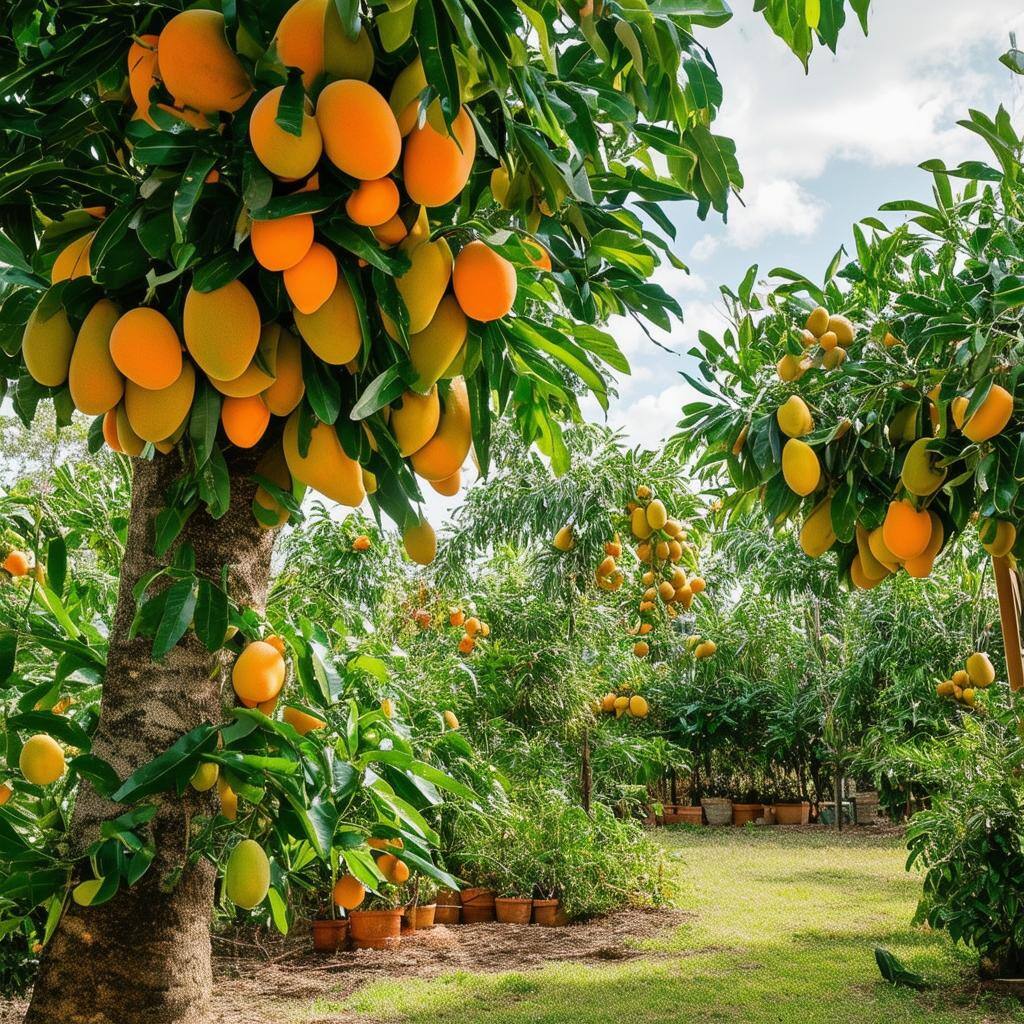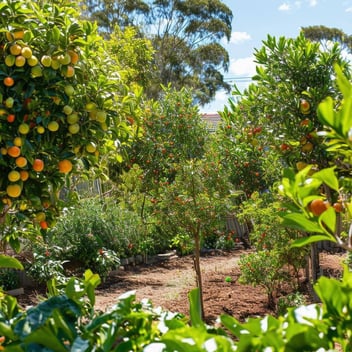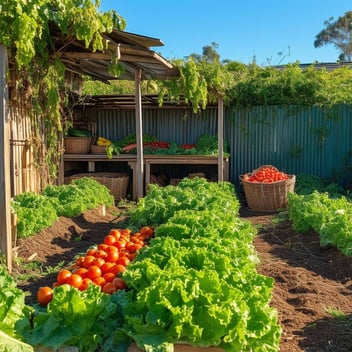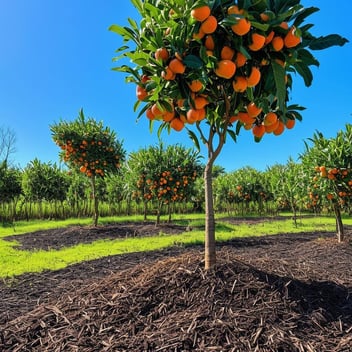The Best Fruit Trees for South East Queensland Backyards
South East Queensland's subtropical climate offers an ideal environment for cultivating a diverse range of fruit trees. With hot, humid summers and mild winters, gardeners can enjoy both tropical and temperate fruits. This guide explores top fruit tree selections suited for the region, providing insights into their cultivation and benefits.
1. Mango (Mangifera indica)
Mango trees thrive in SEQ's warm climate, producing succulent, aromatic fruits. Varieties such as 'Kensington Pride' and 'R2E2' are popular choices. Plant in well-draining soil with full sun exposure. Regular watering during establishment is essential, but once mature, mango trees exhibit drought tolerance. Prune to maintain size and shape, and enjoy fresh or in culinary delights.
2. Avocado (Persea americana)
Avocado trees flourish in SEQ, offering creamy, nutrient-rich fruits. The 'Hass' and 'Shepard' varieties are well-suited to the region. They prefer a sunny location with well-draining soil. Ensure consistent watering, especially during flowering and fruiting periods. Mulching helps retain soil moisture and regulate temperature. Regular pruning promotes healthy growth and fruit production.
3. Citrus Trees (Citrus spp.)
Citrus trees, including lemons, limes, oranges, and mandarins, are quintessential to SEQ gardens. They require full sun and well-draining soil. Regular watering and fertilization during the growing season enhance fruit quality. Prune to maintain airflow and remove any dead or diseased branches. Citrus fruits are versatile, used in beverages, desserts, and savory dishes.
4. Macadamia (Macadamia integrifolia)
Native to Queensland, macadamia trees produce rich, buttery nuts. They prefer well-draining soil and a sunny position. Regular watering is crucial during the initial years; mature trees are more drought-tolerant. Prune to maintain structure and health. Harvest nuts when they naturally fall, and enjoy them roasted or in various recipes.
5. Banana (Musa spp.)
Banana plants are well-suited to SEQ's subtropical environment. They thrive in rich, well-draining soil with full sun. Consistent moisture is essential, along with protection from strong winds. Regularly remove old leaves and spent fruiting stems to encourage new growth. Bananas provide a tropical aesthetic and a bountiful harvest.
6. Pawpaw (Carica papaya)
Pawpaw, or papaya, grows vigorously in SEQ, yielding sweet, orange-fleshed fruits. Plant in well-draining soil with ample sunlight. Regular watering and balanced fertilization promote fruit development. Pawpaw trees have a relatively short lifespan but produce fruit quickly, often within a year of planting. Enjoy fresh or in salads and smoothies.
7. Lychee (Litchi chinensis)
Lychee trees, with their lush foliage and clusters of juicy, aromatic fruits, are a delightful addition to SEQ backyards. They prefer well-draining soil and a sunny location. Regular watering is essential, particularly during dry periods. Mulching helps retain soil moisture and suppress weeds. Prune to maintain size and encourage air circulation. Harvest lychees when the skin turns red, and enjoy them fresh or in desserts.
8. Passionfruit (Passiflora edulis)
Passionfruit vines thrive in SEQ, producing aromatic, tangy fruits. They require a sturdy trellis or support structure and well-draining soil. Full sun exposure and regular watering are vital for vigorous growth. Prune to control size and remove any dead or weak growth. Passionfruit pulp enhances desserts, beverages, and sauces.
9. Fig (Ficus carica)
Fig trees are well-adapted to SEQ's climate, yielding sweet, honeyed fruits. They prefer full sun and well-draining soil. Once established, fig trees are relatively drought-tolerant. Prune during dormancy to maintain shape and encourage fruiting. Figs can be enjoyed fresh, dried, or used in various culinary creations.
10. Pomegranate (Punica granatum)
Pomegranate trees, with their vibrant flowers and jewel-like fruits, are both ornamental and productive in SEQ gardens. They thrive in full sun and well-draining soil. Once established, they are drought-tolerant but benefit from regular watering during fruit development. Prune to maintain an open canopy and remove any suckers. Pomegranate arils add a burst of flavor to salads, desserts, and beverages.
Incorporating these fruit trees into your South East Queensland backyard not only enhances its aesthetic appeal but also provides a sustainable source of fresh, homegrown produce. With proper care and attention, these trees will flourish, offering bountiful harvests for years to come.




